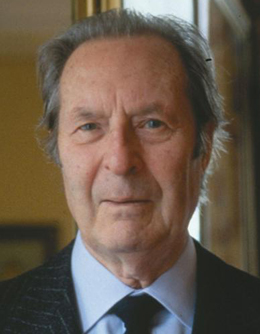Maestro Furtwängler will get us from Beethoven's sublime symphonic adagio to Bruckner; then Carlo Maria Giulini will carry us on to Mahler.
BEETHOVEN: Symphony No. 9 in D minor, Op. 125:
iii. Adagio molto e cantabile
Bayreuth Festival Orchestra, Wilhelm Furtwängler, cond. EMI, recorded live in the Festspielhaus, July 29, 1951
Berlin Philharmonic, Carlo Maria Giulini, cond. DG, recorded in the Philharmonie, Feb. 1989 & Feb. 1990
by Ken
Last week, you may recall, "Our ongoing Seiji Ozawa remembrance sidetracked me into some aural pondering of the symphonic adagio." I'm afraid we're not going to get much farther today than scouting the route, but that still leaves us in for some remarkable music.
You'll note that in last week's post I've upgraded the audio clip of the 1951 Furtwängler Beethoven Ninth, and this week we've heard it again, paired with Carlo Maria Giulini's performance, and that duo will escort us to -- in fact, all the way through -- Anton Bruckner's symphonic adagio-ing, to his final Adagio, the last movement he composed, the Adagio of his Ninth Symphony, whose intended finale he ran out of either time or inspiration to "complete."
The sound of Furtwängler's 1944 Bruckner 9 is less happy even than that of his 1951 Beethoven 9 [AFTERTHOUGHT: however, the upgraded Beethoven 9 audio clip sure sounds better (how 'bout those timpani?), and for that matter the Bruckner 9 clip sounds a lot better than I expected -- Ed.], but it's good enough, and will have to do, since it's the only Bruckner 9 he left us. And if there's one thing classical-music lovers generally agree on (there aren't many!), it's that the Furtwängler Bruckner 9 is one of the greatest and least dispensable recordings we have. That said, Carlo Maria Giulini's Bruckner 9 seems to me of comparable stature. In the fullness of his long career, Maestro G. had the opportunity to show us how deep and darkly perceiving an artist he was -- I've described this performance as "dripping blood."
Finally for this week, Maestro Furtwängler not being a Mahler guy, Maestro Giulini will lead us the final step to Mahler, represented by a movement I don't think is often thought of as a "symphonic adagio" -- only it is, isn't it?
LISTENING TO FURTWÄNGLER'S AND GIULINI'S
PERFORMANCES OF THE ADAGIO OF BRUCKNER 9 . . .
. . . it's hard to imagine what could follow this shattering vision. Indeed, I'd like to think that it at least occurred to the composer too, amid the protracted distress he clearly experienced trying to "finish" his Ninth Symphony, that the thing was just fine the way he would be forced to leave it -- that boy, was it ever "complete"! We can even ponder whether this unintended case of The Symphony That Concluded with an Adagio served to give Mahler ideas, especially as we listen to the conclusion of what is in all but name his ninth symphony, Das Lied von der Erde (The Song of the Earth).
And we'll be reminded -- when eventually (not today, alas) we get to the symphony to which he actually allotted the fateful No. 9, the last symphony that he would complete (though, happily, he left us enough material for the rest of the symphony to give us a good idea of how it would work; not only the great Mahler authority Deryck Cooke but various others have produced "performing versions" of a full five-movement Mahler 10) -- that in time he decided that you could start as well as finish a symphony with an adagio; he not only did it with his official "Ninth Symphony" but was doing it again with the Tenth.
BRUCKNER: Symphony No. 9 in D minor:
iii. Adagio - Langsam, feierlich (Slow, solemn)
Berlin Philharmonic, Wilhelm Furtwängler, cond. Live performance from the Beethovensaal, Oct. 7, 1944 [first issued by DG in 1963]
Vienna Philharmonic, Carlo Maria Giulini, cond. DG, recorded live in the Grosser Saal of the Musikverein, June 1988
MAHLER: Das Lied von der Erde (The Song of the Earth):
vi. "Der Abschied" ("The Farewell") -- conclusion, from the
orchestral interlude through the final stanza, "Er stieg vom Pferd"
ORCHESTRAL INTERLUDE
["Er stieg vom Pferd . . ."]
Brigitte Fassbaender
He alit from his horse
and handed him the drink of farewell.
He asked him whither he was going,
and also why, why it had to be.
He spoke; his voice was veiled:
You, my friend --
In this world fortune was not kind to me!
Where do I go?
I go, I wander in the mountains,
I seek rest for my lonely heart!
I journey to the homeland,
to my resting place;
I shall never again go seeking the far distance.
My heart is still and awaits its hour!
["Die liebe Erde . . ."] The dear earth everywhere
blossoms in spring and grows green again!
Everywhere and eternally the distance shines bright and blue!
Eternally . . . eternally . . .
-- English translation by Deryck Cooke
["Er stieg vom Pferd" at 6:05; "Die liebe Erde" at 12:18]
Brigitte Fassbaender, mezzo-soprano; Berlin Philharmonic, Carlo Maria Giulini, cond. DG, recorded in the Philharmonie, Feb. 17, 1984
["Er stieg vom Pferd" at 6:01; "Die liebe Erde" at 12:15]
Brigitte Fassbaender, mezzo-soprano; Vienna Philharmonic, Carlo Maria Giulini, cond. Orfeo, recorded live at the Salzburg Festival, Aug. 2, 1987
[NOTE: For the record, Giulini's solid tenor soloist in both Berlin and Salzburg (with the Vienna Philharmonic) was Francisco Araiza.]
NEXT UP: Bruckner and Mahler take their (bitter)sweet time
#




No comments:
Post a Comment